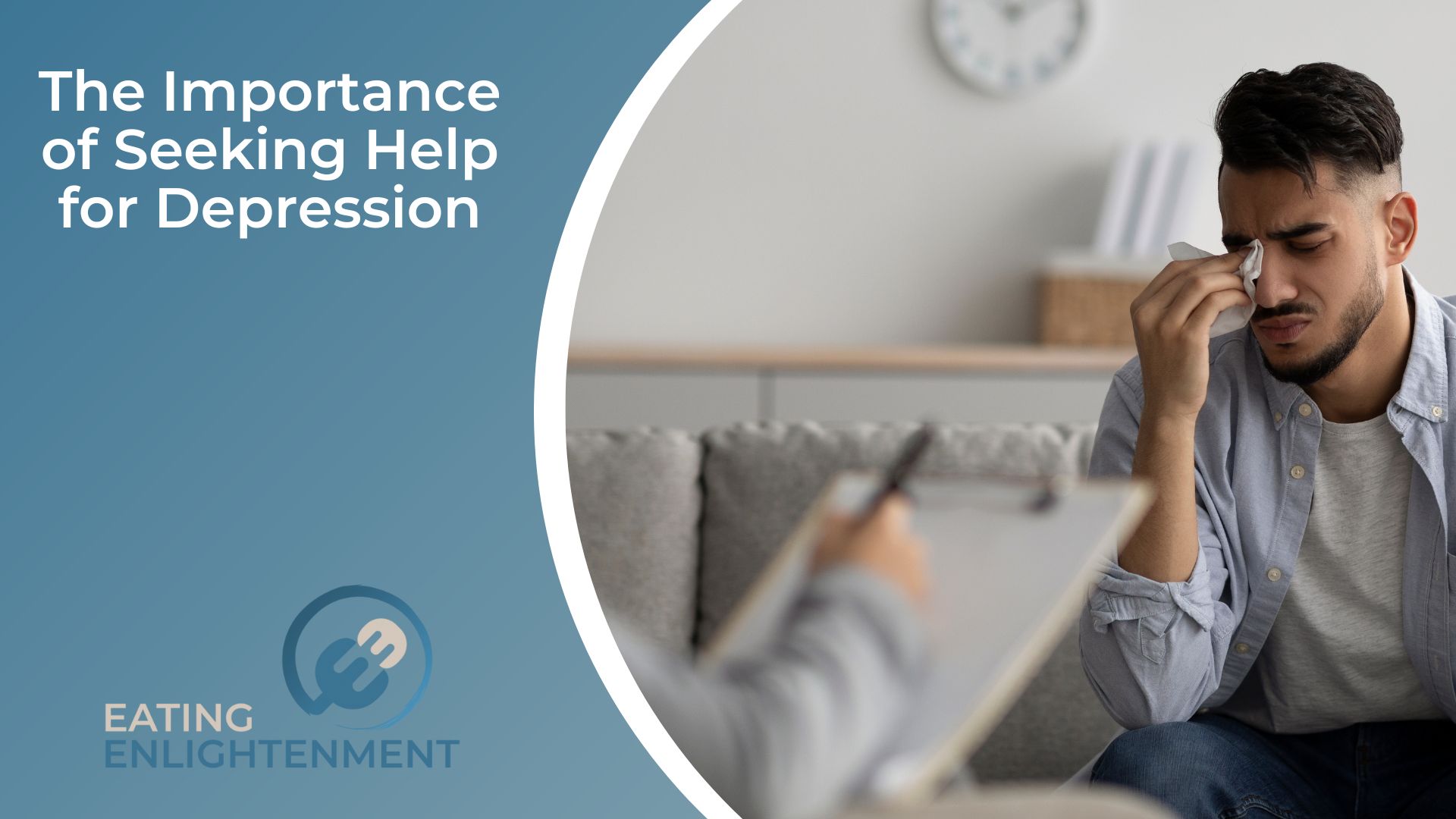Depression, a common but serious mental health disorder, impacts millions worldwide. It’s an insidious condition that can silently chip away at an individual’s quality of life, disrupting everything from work productivity to interpersonal relationships.
Yet, despite its prevalence and impact, many people hesitate to seek help due to stigma or misunderstanding. This blog aims to underline the importance of seeking help for depression, shedding light on the numerous resources, treatments, and support networks available, and reinforcing the message that no one needs to face this struggle alone.

Types of Therapy
There are several types of therapy available that have been proven effective in treating depression. Cognitive Behavioral Therapy (CBT) is a common method that works on the premise that changing thought patterns can alter behaviors and emotions. Transcranial Magnetic Stimulation, also known as TMS Therapy, is a non-invasive treatment option that uses magnetic fields to stimulate nerve cells in the brain, helping to improve depression symptoms.
Other types of therapy include Interpersonal Therapy (IPT), which focuses on improving relationships and communication skills, and Psychodynamic Therapy, which examines how past experiences may be influencing current thoughts and behaviors.
Breaking the Stigma
One of the substantial hurdles in the battle against depression is the pervasive societal stigma. This stigma often stems from misconceptions, lack of understanding, or cultural beliefs about mental health. It can create an environment of silence, where individuals with depression feel ashamed or afraid to seek help.
To break this stigma, it’s essential to foster open dialogue about mental health, educate the public about depression, and challenge stereotypes. Remember, seeking help for mental health issues is not a sign of weakness, but an act of strength and self-care. By normalizing mental health discussions and acknowledging that anyone can be affected, we can create a supportive environment that encourages those suffering from depression to seek the help they need.
The Impact on Daily Life
Depression doesn’t just affect a person’s mood. It can permeate every aspect of daily life, making even the simplest tasks feel insurmountable. Sufferers may experience a loss of interest or pleasure in activities they once enjoyed, changes in appetite or weight, difficulty sleeping, or a lack of energy. Concentration can be impaired, and decisions, no matter how trivial, can seem overwhelming.
Social withdrawal often occurs, as individuals may pull away from family, friends, and social activities. Work or academic performance may suffer as a result of these physical, emotional, and cognitive changes. It’s crucial to understand this pervasive impact to fully appreciate why seeking help and treatment for depression is so important.
Reaching Out to Loved Ones
Depression can feel isolating, but it’s important to remember that those suffering are not alone. Reaching out to loved ones can be a critical step in the healing process. No matter how difficult or uncomfortable it may seem, opening up about your feelings to trusted family members or friends can provide much-needed support and understanding. Loved ones can offer a listening ear, words of encouragement, or simply their presence, which can make a significant difference.
Moreover, they can assist in seeking professional help, accompany you to appointments, or help maintain treatment plans. It’s paramount to remember that asking for help is no admission of failure; rather, it’s a testament to your courage and willingness to fight against depression.

Professional Guidance
Professional guidance plays a pivotal role in the treatment of depression. Mental health professionals, such as psychiatrists, psychologists, or therapists, have the necessary expertise to diagnose and treat depression. They can help individuals understand their condition and guide them toward effective treatment options tailored to their unique situation. An initial evaluation will typically involve a comprehensive discussion about symptoms, life circumstances, thoughts and feelings, and personal and family history of mental health conditions.
Treatment may include psychotherapy, medication, or a combination of both, and it can be adjusted over time based on the individual’s progress and needs. Mental health professionals can also provide tools and strategies to manage symptoms, cope with life challenges, and foster resilience. Seeking professional guidance is a crucial step on the road to recovery and should be seen as a sign of strength rather than weakness.
Finally, it is critical to get therapy for depression. Treatment, support, and advice are easily accessible, and no one should suffer in silence. Individuals may take responsibility for their mental health by reducing stigma, learning how depression affects their daily lives, reaching out to loved ones, obtaining professional support, and striving for a brighter, healthier future. So, if you or someone you love is battling with depression, don’t be afraid to get treatment; it might be the first step toward a brighter tomorrow.



